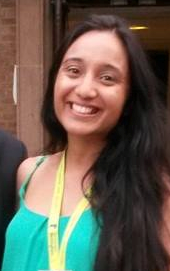July 16, 2014, by studentcontributor
Considerations when choosing a medical school
 Hello, my name is Amandeep and I am a second year medical student. I’ve thoroughly enjoyed my first two years of living and studying in Nottingham and have three more to go! Hopefully I’m going to shed some light about medical schools so you feel confident about choosing the right medical school for you.
Hello, my name is Amandeep and I am a second year medical student. I’ve thoroughly enjoyed my first two years of living and studying in Nottingham and have three more to go! Hopefully I’m going to shed some light about medical schools so you feel confident about choosing the right medical school for you.
Whichever medical schools you apply to, make sure you know as much as you can about their course, how they process your application and what the interview involves.
It’s so important, because without knowing these key facts you won’t know if that medical course suits your current qualifications and qualities.
Teaching
-
Traditional vs Problem Based Learning (PBL)
I’d suggest you invest time in working out what type of teaching you would prefer. I knew in myself that having a traditional more lecture based and integrated course was important to me. On the other hand, some people prefer working in groups to solve problems and develop their research skills to form a conclusion. So try and find out what kind of learner you are.
-
Dissection vs Prosection
What’s the difference? Dissection is when YOU dissect the cadaver and prosection is when SOMEONE ELSE has already dissected it for you. I’ve loved learning anatomy through full body dissection; it was fascinating and very clinically relevant. If you aren’t too keen on taking a hands-on approach perhaps you may be better suited to prosections.
-
Clinical experience
This has to be one of my favourite things about being a medical student! At Nottingham we have a mix of GP and hospital placements which provide opportunities to build upon our confidence. Other medical schools may start exposing students to patients after a couple of years, so it’s worth doing your research to find out what you would enjoy more.
Entry requirements
-
Qualifications
Many medical schools will request AAA at A2 level to study on their course. But don’t forget about your GCSE profile too! One of the medical schools I applied to had a point scoring system and awarded a different amount of points depending on each grade achieved. This is just one example of how they may process your grades, so make sure you are clued in!
-
Additional tests
The UKCAT and the BMAT are two additional tests that medical schools may request you to take. Some may have thresholds for UKCAT scores, therefore it would be a good idea when you receive your results to double check your eligibility for that medical school. Whereas, the BMAT is usually sat after you have submitted your UCAS application; so I’d recommend having some UKCAT medical schools to fall back on.
-
Interviews
Some medical schools may interview individually, in a group or through multiple stations, whilst others may not interview you at all. Not many 17-year-olds have lots of interview experience so perhaps choose schools with varying interview styles so at least one of the styles will suit your skills and personality.
Location
I suggest you do attend open days for all the medical schools you wish to apply to. The opportunity enables you to gain a better insight to what life as a medical student at that university is actually like. Also it gives you a chance to have any questions answering to that you were previously unsure about.
All in all, we are all individuals and each medical school is individual too. You deserve to go to the best place for you which complement your learning style and ambitions, so make sure you invest time into selecting the right places for you.
Previous Post
Writing your personal statementNext Post
Medicine and the work-work balanceNo comments yet, fill out a comment to be the first

Leave a Reply